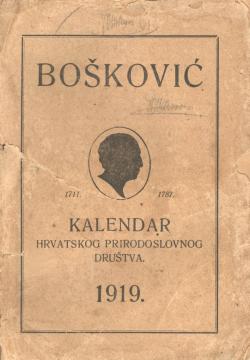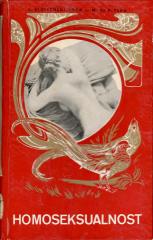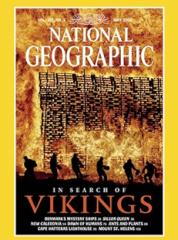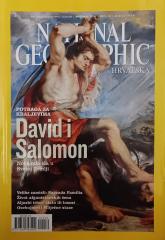
Bošković – kalendar Hrvatskog prirodoslovnog društva
Kalendar posvećen Ruđeru Josipu Boškoviću povodom 200. obljetnice rođenja. Izdan 1919. godine u Zagrebu, kalendar donosi pregled Boškovićeva života i rada, naglašavajući njegovu ulogu u matematici, astronomiji, fizici i filozofiji.
Kao isusovac i dubrovački polihistor, Bošković je ostavio neizbrisiv trag u europskoj znanosti, posebice djelom Teorija prirodne filozofije (1758.). Kalendar ističe njegovu povezanost s hrvatskim identitetom, potvrđenu korespondencijom na hrvatskom jeziku s rodbinom, uključujući sestru Anicu.
Posebni prilozi bave se narodnim imenima i pismima Anice Bošković, prve hrvatske književnice. Analizira se podrijetlo imena „Bošković“, izvedenog od „Boško“, narodnog imena uobičajenog među Hrvatima u istočnoj Hercegovini od srednjeg vijeka. Prilozi raspravljaju o kontinuitetu imena unatoč utjecaju Tridentskog sabora, koji je favorizirao kršćanska imena. Aničina pisma, pisana bratu Ruđeru, ističu se književnom vrijednošću i svjedoče o njezinoj duhovnosti, obrazovanosti i obiteljskoj povezanosti. Njezin opus, uključujući Razgovor pastirski (1758.), spominje se kao pionirski doprinos hrvatskoj književnosti.
Kalendar, obogaćen znanstvenim i kulturnim uvidima, slavi Boškoviće kao simbol hrvatske intelektualne baštine, povezujući znanost, književnost i narodnu tradiciju.
Jedan primjerak je u ponudi
- Oštećene korice
- Oštećena leđa





